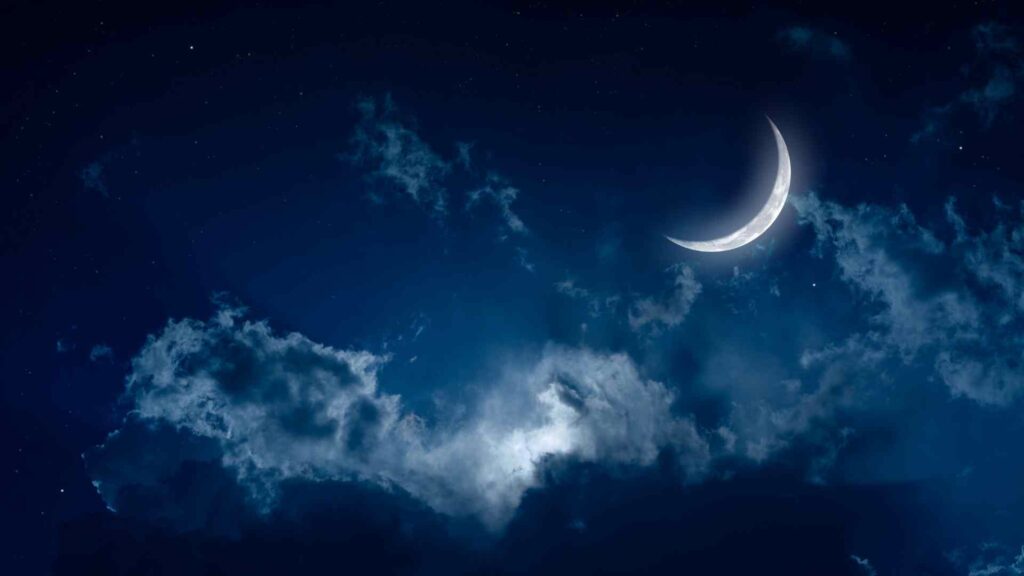The “Riddle of the Night” has captured imaginations across cultures and ages, inspiring curiosity, art, and endless interpretations.
What does it signify? Is it a metaphor, a puzzle, or something more profound? This guide dives into the depths of its meaning, exploring origins, cultural significance, and why it continues to enchant us today.
The Origins of the Riddle of the Night
The “Riddle of the Night” is an enigmatic phrase often tied to themes of darkness, mystery, and the unknown.
Historically, it appears in poetry, folklore, and philosophy, symbolizing the human quest for understanding in the face of uncertainty.
From ancient texts to modern musings, the term evokes timeless questions about existence and the secrets of the universe.
- In Ancient Mythology: Many ancient cultures linked night with the unknown. In Greek mythology, Nyx, the goddess of night, represented both fear and beauty, embodying the riddle of what lies beyond the veil of darkness.
- In Literature: Writers like Edgar Allan Poe and Robert Frost used night as a symbol of life’s unanswered questions. The “Riddle of the Night” often appeared in allegories, challenging readers to confront existential mysteries.

Symbolism Behind the Night
Night has long been a metaphor for the hidden, the mysterious, and the subconscious. It forces us to rely on intuition over sight, drawing parallels to life’s uncertainties.
- Darkness and Discovery: In darkness, we rely on senses beyond the visual, representing a journey inward to discover truths.
- Cultural Perspectives:
- Eastern Traditions: Night often symbolizes yin energy, embodying calm, introspection, and depth.
- Western Traditions: Night reflects endings and the promise of dawn, symbolizing renewal.
The Riddle in Folklore and Mythology
The “Riddle of the Night” takes various forms in stories passed through generations, each with unique interpretations.
- The Sphinx’s Riddle: Greek mythology offers the riddle of the Sphinx, tying darkness and day with human life cycles, a recurring theme tied to night.
- Norse Myths: In Norse sagas, night is often personified, holding secrets that only the brave or wise can unveil.

Philosophical Interpretations
Philosophers have long grappled with the metaphor of night, linking it to human consciousness and the unknown.
- Plato’s Allegory of the Cave: Although not explicitly about night, it resonates with the idea of emerging from darkness (ignorance) into light (knowledge).
- Nietzsche on Darkness: Nietzsche viewed darkness as a space for confronting truths, suggesting the “Riddle of the Night” is an invitation to embrace life’s uncertainties.
The Riddle in Modern Literature
Contemporary authors and poets continue to explore the “Riddle of the Night,” weaving it into narratives and themes that resonate today.
- Mystery Novels and Thrillers: Modern writers often use night as the setting for solving puzzles and uncovering secrets, reinforcing its connection to mystery.
- Poetry: Poets like Sylvia Plath and Mary Oliver frame night as a contemplative space, exploring the riddle of existence.
Why Night Evokes Fear and Fascination
The dual nature of night—fearsome and captivating—makes it a powerful motif in human culture.
- Psychological Aspects: Darkness triggers primal fears, a reminder of humanity’s evolutionary past.
- Artistic Inspiration: Artists, from Van Gogh to filmmakers like Christopher Nolan, use night as a canvas for exploring existential themes.
Riddles as a Tool for Understanding
Riddles, including the “Riddle of the Night,” engage our cognitive abilities, forcing us to think critically and creatively.
- Purpose of Riddles: They challenge conventional thought and encourage deeper exploration of life’s mysteries.
- Applications: In education and philosophy, riddles help unlock abstract concepts, bridging gaps between the known and the unknown.

Interpretations in Music and Art
Music and art often capture the essence of the “Riddle of the Night,” providing emotional and sensory representations of its themes.
- Music: Composers like Beethoven (e.g., “Moonlight Sonata”) evoke night’s mystery and emotion.
- Visual Arts: Nightscapes by artists like Rembrandt and Hopper depict the duality of stillness and mystery.
The Riddle in Science and Exploration
Night isn’t just a poetic concept; it’s central to scientific exploration and discovery.
- Astronomy: Night offers a window to the universe, representing the unknown. Every star seen at night is a piece of the puzzle about our origins.
- Dream Research: Night and sleep unlock mysteries of the human mind, delving into subconscious truths.
Cultural Celebrations of the Night
Many cultures celebrate the night through festivals, emphasizing its beauty and mystery.
- Diwali (India): A festival of lights that celebrates the triumph of light over darkness.
- Lunar New Year: Rooted in celestial cycles, it reflects humanity’s connection to the rhythms of night.
Unraveling the Riddle in Daily Life
Even in modern life, the “Riddle of the Night” influences our actions and reflections.
- Meditation and Reflection: Many find clarity and insight during the quiet hours of night.
- Creative Pursuits: Artists, writers, and thinkers often draw inspiration from the tranquility of night.
The Riddle’s Relevance Today
In an age of technology and constant light, the metaphorical “Riddle of the Night” remains as relevant as ever.
- Digital Nightfall: The artificial separation from natural cycles prompts a longing for the mystery and calm of true night.
- Human Connection: Night invites shared stories, deep conversations, and personal growth.
How to Embrace the Mystery of the Night
Engaging with the “Riddle of the Night” can enrich our understanding of life’s complexities.
- Explore Nature: Spend a night under the stars, reflecting on the vastness of the universe.
- Contemplate Symbolism: Use night as a metaphor for introspection and growth in daily life.
Common Misconceptions About Night’s Mystery
Misunderstandings about night and its symbolism often lead to fear or dismissal of its deeper meaning.
- Darkness as Evil: While night is often portrayed as sinister, it also represents renewal and possibility.
- Ignorance of Night’s Beauty: Urban life disconnects many from the awe of a natural, star-filled night.
FAQs About the Riddle of the Night
What is the “Riddle of the Night”?
It’s a metaphorical or literal question tied to themes of mystery, darkness, and the unknown.
Why is night associated with riddles?
Night represents the unseen and unknown, much like a riddle challenges perception and understanding.
How is night symbolic in literature?
Night often symbolizes introspection, mystery, and existential themes in storytelling and poetry.
What role does night play in art?
Night serves as a motif for stillness, beauty, and the enigma of existence, inspiring countless works.
Why does night evoke fear?
Darkness triggers evolutionary survival instincts and symbolizes the unknown.
How can I connect with the “Riddle of the Night”?
Embrace its themes by reflecting, exploring nature, and contemplating its symbolism in your life.
Conclusion
The “Riddle of the Night” continues to captivate humanity, blending mystery, beauty, and introspection.
Whether through art, philosophy, or personal reflection, it invites us to explore life’s deeper questions. As we unravel its threads, we discover that the answers often lie in the journey itself.
